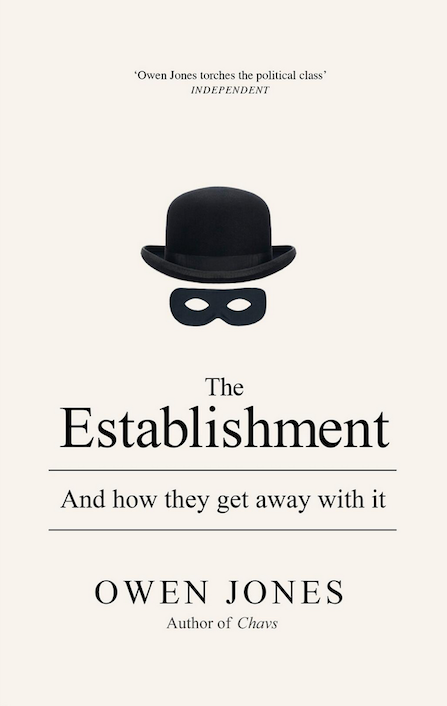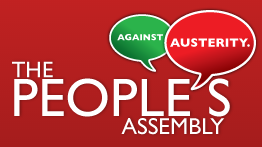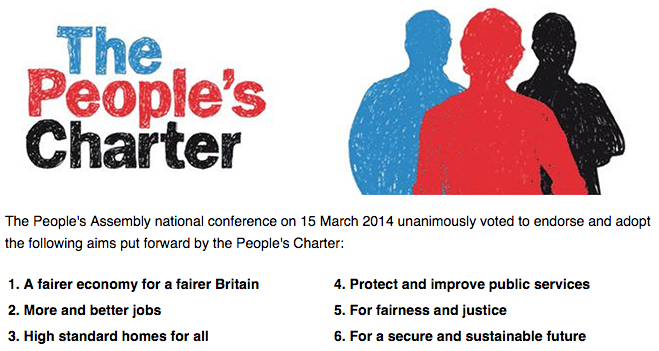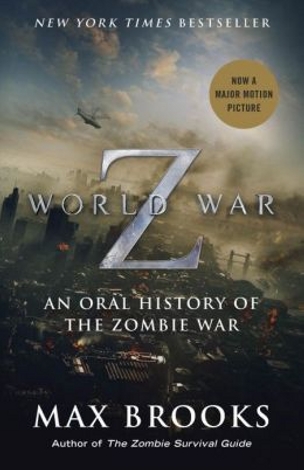 |
In The Establishment, Owen Jones starts by defining Britain’s Establishment today. Then Jones looks back at political history to how the modern day Establishment of Britain came to be, focusing on each facet, in chapters titled: The Outriders, The Westminster Cartel, Mediaocracy, The Boys in Blue, Scrounging off the State, Tycoons and Tax-Dodgers, Masters of the Universe and The Illusion of Sovereignty.
In ‘The Outriders’ Jones explains how a few wealthy elite changed societies view (the ‘Overton Window’) from one of socialism to capitalism, the free market and privatisation. Jones demonstrates how people with alternative views to The Establishment are silenced, discredited or have their lives destroyed for speaking out.
[Continued below…]
|
In ‘The Westminster Cartel’ Jones exposes the revolving door of MPs going back and forth between Politics, Business, the Media and Think Tanks. In ‘Mediaocracy’ Jones reveals the media’s role in propaganda both for governments and against, with the media’s agenda being those of their wealthy owners – whom have close-links with MPs from all political parties.
In ‘The Boys in Blue’ Jones describes the role the Police played in creating today’s Establishment and gives examples of Police corruption and cover ups. He explains how the Establishment eventually turned on the Police. Jones gives real examples of the inequality of Police treatment between different groups, which includes the difference in treatment between those with power and those without.
Jones writes about the real people ‘Scrounging off the State’: the wealthy elite. He writes that public assets, such as the railways, are being and have been sold off for profit. That the wealthy elite get the profits, as well as tax-payer subsidies (as well as benefits for employees on low wages, healthcare for their employees, employees educated by the state, etc.) but that the tax-payer shoulders all the risk. If something goes wrong – like it did with the Banks, big business relies on the State to step in and bail them out.
In ‘Tycoons and Tax-Dodgers’ Jones explains how the rich feel that they pay enough tax and sheds light on the complicated tax avoidance schemes used by big businesses, that are all perfectly legal – thanks to the big businesses’ Lobbyists, Accountants and PR firms. Jones exposes the toxic relationship between the Treasury and big companies. That big companies actually help to develop Tax Policy with Treasury Civil Servants and the Government.
In ‘Masters of the Universe’ Jones examines the financial sector, particularly ‘the City’ referring to London’s financial sector. Jones discusses how successive governments relaxed regulation to keep their Banker friend’s happy prior to the financial collapse in 2008. That despite the collapse and the tax-payer bailout to the tune of over a trillion pounds, there is still no real robust regulation and there’s an attitude of continue as before. That the financial sector is driven by an unregulated greed for profit, a big bonus culture and to increase the wealth of the already extremely wealthy.
In ‘The Illusion of Sovereignty’ Jones scrutinises the relationship between Britain’s Establishment, the United States of America (US) and European Union (EU). He shows that the Establishment’s mentality is international and shared with the US, by looking at the history of the ‘special relationship’. Jones looks at the history of the Britain and the EU, identifying some elements of the EU that share the British Establishment’s mentality and other elements that oppose the British Establishment’s mentality. This mix of shared and opposed views to the British Establishment, is most likely why there is a politically mixed view of the EU in the UK.
In Jones’ final chapter titled ‘Conclusion: A Democratic Revolution’ he states that the Establishment is being run for a wealthy few, rather than for the majority. He states that the majority have had enough; enough of falling living standards, the rich getting richer and the poor getting poorer, and that the time to challenge the Establishment is now. Jones states that austerity is ideological rather than required. He identifies changes to improve society, but gives little practical advice for readers who may want to get involved with political change. This chapter was also the shortest in the book, which was a slight disappointment.
Throughout The Establishment, Owen Jones references the points that he makes, shares interviews he has conducted with people who have been involved with creating and maintaining the Establishment and gives examples to illustrate his points.
The Establishment shows the shocking level of corruption and vested interests, along with laws that protect the wealthy elite – all created by The Establishment (the wealthy elite) to balance society in their favour. It will make you think. Hopefully by Jones shining a light on the murky Establishment it will lead to the people challenging The Establishment for the political change they want.
The Establishment is an excellent and informative book about how society has come to operate today for the minority and how it can be changed to operate for the majority. The Establishment is an essential read for all, especially those interested in politics or political change.
Review soon,
Antony







